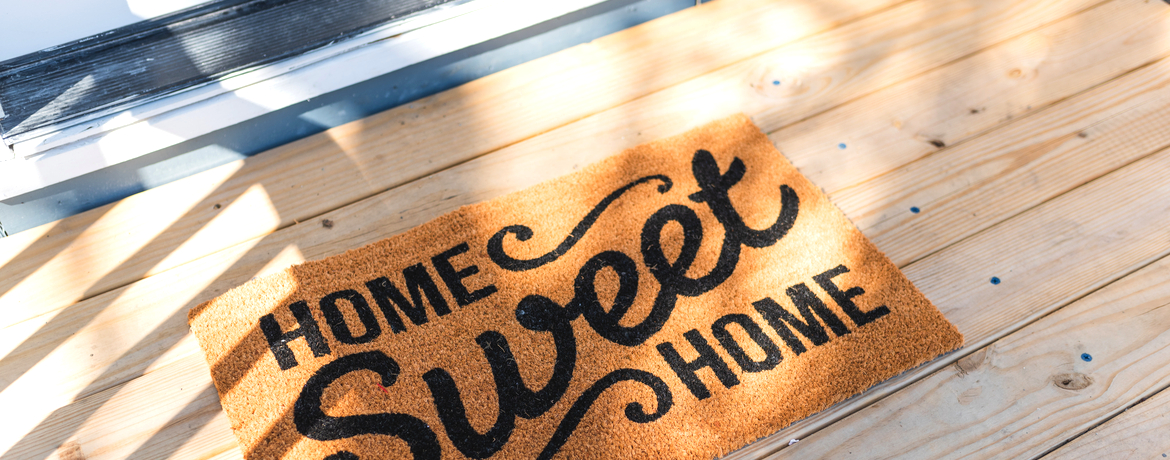Due to the greater response to the article “Airbnb – The tax office knows who you rented to last summer!” – we are once again expanding our comments to include the following points:
After we have so far dealt in particular with the issues surrounding the investigative measures of the German tax authorities and the resulting tax obligations or consequences under criminal tax law, this time we will address the more unknown secondary consequences.
- What is the city tax?
- What is residential misappropriation?
- What will I face should there be a residential misappropriation?
- Am I also affected if I have rented out on portals other than Airbnb (Fewo-Direkt, Booking, Naturhäuschen, 9flats, BestFewo)?
Casual landlords – Airbnb & rental portals targeted by tax authorities!
What is the CityTax?
At the beginning of 2010, due to the Growth Acceleration Act, the VAT rate for accommodation services was reduced from 19% to 7%. This made some municipalities inventive, so that some thought about introducing the CityTax.
Since tourism is subject to each federal state, each state may also decide for itself whether to introduce such a tax and, if so, what the details of the tax should be.
(Almost) uniform in this is:
Those who travel on business and present a certificate from their employer to that effect (the relevant form must be obtained from the respective city) may be exempt from this “tourism tax.”
We have summarized in a table at the end of this article the cities in which such a cultural promotion tax is already levied and what special features there are (no claim to completeness).
More and more cities are joining in: currently, cities such as Constance, Mannheim and Stuttgart, among others, are planning to introduce such a tourism tax. In Bavaria, the state parliament has generally spoken out against such a tourism tax/CityTax.
How is the CityTax to be considered in connection with a self-disclosure? And how can one (subsequently) prove which guests had rented the accommodation privately or on business?
What else needs to be considered?
It is no secret that there is a shortage of affordable housing in many major cities in Germany. In order to counteract this problem, the German state of Bavaria, for example, created the Law on the Prohibition of the Misappropriation of Residential Space (Zweckentfremdungsgesetz) – ZwEWG for short – in 2007.
This law (with six articles of manageable scope) regulates what action constitutes a misappropriation of living space and what the consequences are if there is a violation of it.
What is housing misappropriation?
The ZwEWG specifies that municipalities can enact bylaws to combat housing shortages for areas where housing is scarce and rents are no longer affordable for an average worker. These bylaws then have a maximum duration of 5 years and can be extended as often as desired.
This is the case in Munich, for example:
The ban on the misappropriation of housing has been in place here since 1972 and has since been renewed time and again by the statutes of the state capital of Munich on the ban on the misappropriation of housing (ZeS for short) and was even tightened significantly with the latest amendment on 02.10.2019.
The tightened statute specifies that apartments may only be used for a purpose other than exclusively private and day-to-day living with the approval of the City of Munich.
Recently, Munich has even gone one step further and created an online reporting portal where neighbors can express suspicion that there may be an illegal rental. As a result, about 900 suspicious cases have been reported in the past three years. Even in the past Corona year 2020, this online reporting portal received about 100 reports.
Section 4 of the statutes regulates which circumstances lead to a misappropriation of residential space:
In particular, a misappropriation occurs if the living space.
- 1.) more than 50 percent of the total area is used or provided for commercial or professional purposes,
- 2.) is structurally altered or used in such a way that it is no longer suitable for residential purposes,
- 3.) is used for tourist accommodation purposes for more than a total of eight weeks in a calendar year,
- 4.) is vacant for more than three months,
- 5.) is removed (demolished).
Thus, at first glance, the children’s room offered for rent does not constitute a misappropriation, as it does not occupy 50% of the living space. According to the information sheet of the City of Munich (500/01.18), this should even apply regardless of the rental period, as long as one shares a bathroom and kitchen with the guests.
In the case of two-room apartments acquired specifically for rental purposes, the situation is quite different, as 100% of the space is rented out here. As you can see, several factors (No. 2 to No. 5) play a role here, which must not be disregarded when considering whether or not there is a misappropriation of living space.
In short:
It must be examined in each individual case whether or not one has violated the prohibition of misappropriation of living space.
What is in store for me should there be a misappropriation of the apartment?
As the law against misappropriation of residential space enacted by the Free State of Bavaria shows, any use other than private residential space is only possible with prior approval.
If you have not obtained such a permit, this is an administrative offense and can be punished with a fine of up to EUR 500,000.00 depending on the violation!
As a result, “occasional landlords” who have not yet disclosed their rental to the tax authorities may be confronted with tax, criminal tax and administrative offense proceedings.
Am I also affected if I have carried out the rental on other portals than Airbnb (Fewo-Direkt, Booking, Naturhäuschen, 9flats, BestFewo)?
It is to be feared that the financial administration will take the positive decision on the release of data in connection with Airbnb as an opportunity to request information from other Internet platforms (so PStR message v. 22.02.2021).
Casual renters via other platforms should therefore also check whether they have complied with the tax requirements in the past.
In which cities such a culture promotion tax is already applied today and which special features exist, our table shows you
“City Tax – Cultural Promotion Levy by City”.
Airbnb – the tax office has contacted? Our expert advises:

Rechtsanwalt
Fachanwalt für Steuerrecht
Geschäftsführer der ACCONSIS
Dr. Christopher Arendt
Selbstanzeigen
Steuerstrafverfahren
Internationales Steuerrecht
Service-Phone
+ 49 89 547143
or by e-mail c.arendt@acconsis.de
My recommendation?
Anyone who has generated income for rentals via various platforms in recent years and has not reported this to the tax office should now act promptly!
I will be happy to assist you in this matter. Please contact me.

Airbnb-Vermieter im Visier der Steuerfahnder
(Airbnb landlords targeted by tax investigators)
Contribution BR24/ Bayerischen Rundfunk
from 08.02.2021
by Dr. Christopher Arendt
Podcast contribution B5 aktuell
Nach Gerichtsurteil:
AirBnB-Privatvermietern droht Ärger mit dem Finanzamt
Sources:
- https://www.iww.de/pstr/schwerpunktthema/selbstanzeige-steuerhinterziehung-bei-vergessenen-airbnb-einkuenften-f135882?utm_campaign=nl-pstr&utm_source=iww-newsletter&utm_medium=email&utm_content=2021-02-10
- https://www.bettensteuer.de/
- https://www.dehoga-bundesverband.de/branchenthemen/bettensteuer/
- https://www.dehoga-bundesverband.de
- https://www.iww.de/pstr/schwerpunktthema/selbstanzeige-steuerhinterziehung-bei-vergessenen-airbnb-einkuenften-f135882?utm_campaign=nl-pstr&utm_source=iww-newsletter&utm_medium=email&utm_content=2021-02-10
- https://www.muenchen.de/rathaus/Stadtverwaltung/
- https://www.muenchen.de/rathaus/Stadtrecht/
- https://www.muenchen.de/rathaus/Stadtverwaltung/
- https://www.gesetze-bayern.de/Content/Document/BayZwEWG2008
- https://www.medienrecht-urheberrecht.de/medienrecht/787-6-000-euro-strafe-wegen-unerlaubter-airbnb-vermietung.html
- https://www.merkur.de/leben/wohnen/wann-darf-ich-meine-wohnung-vermieten-bei-airbnb-co-zr-7120381.html
- https://bayrvr.de/2020/03/03/ag-muenchen-bussgeld-von-6-000-euro-wegen-zweckentfremdung-von-wohnraum-verhaengt/
- https://www.wohnen-im-eigentum.de/eigentumswohnung/
- https://www.muenchen.de/rathaus/Stadtverwaltung/
- https://www.google.de/search

